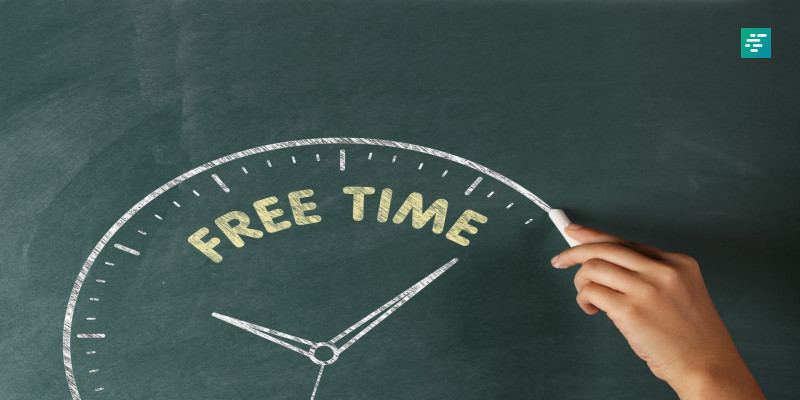
Maximizing Student Success: The Art of Productive Use of Free Time
- DIY and Life Hacks
- 19 Oct, 2023
- 2122
As students navigate the demanding world of academics and extracurricular activities, free time becomes a precious commodity. Instead of squandering these valuable moments on unproductive endeavors, wise students can learn to harness their free time effectively to enhance their personal growth, academic achievements, and overall well-being. In this article, we will explore the art of productive use of free time for students, providing practical strategies and insights to help make the most of those precious moments.
Set Clear Goals
Productive use of free time begins with setting clear goals. Start by identifying what you want to achieve or improve upon during your free time. These goals could be academic, personal, or even related to your hobbies and interests. By having well-defined objectives, you'll be more motivated and focused when you have free time. For instance, if you're aiming to improve your grades, allocate your free time for focused study sessions or to complete assignments. On the other hand, if you're interested in picking up a new skill, allocate your free time for practicing that skill consistently.
Prioritize Tasks
Once you've set your goals, prioritize your tasks. Not all free time activities are equally important. It's essential to discern between activities that contribute to your long-term success and those that are merely distractions. Prioritization can help you focus your efforts where they will have the most impact.
To prioritize effectively, consider using the Eisenhower Matrix, which categorizes tasks into four quadrants: urgent and important, important but not urgent, urgent but not important, and neither urgent nor important. Focus on activities in the second quadrant, as these are essential but often get neglected.
Time Management
Effective time management is a crucial skill for students aiming to make the best use of their free time. To manage your time more efficiently, consider adopting the Pomodoro Technique, which involves working for a focused 25-minute period followed by a 5-minute break. This method can help maintain concentration and avoid burnout during study or work sessions. Furthermore, you can use time management apps or tools to schedule your free time more effectively. Popular choices include Todoist, Trello, or Google Calendar. These tools can help you organize your goals, tasks, and deadlines, making it easier to track your progress and ensure you're utilizing your free time productively.
Learn Something New
Free time offers an excellent opportunity to expand your knowledge and skills. Consider taking online courses or attending workshops that align with your academic and career goals. Learning something new not only enhances your personal development but also adds value to your skill set. There are numerous online platforms like Coursera, edX, and Khan Academy, offering a wide range of courses, including academic subjects, coding, foreign languages, and more. Taking advantage of such resources can help you make the most of your free time and gain a competitive edge.
Exercise and Physical Well-being
Physical health is often overlooked in the pursuit of academic success, but it plays a critical role in overall well-being and productivity. Regular exercise can improve focus, reduce stress, and boost your energy levels. Make use of your free time to engage in physical activities such as jogging, yoga, or even joining a sports team.
Moreover, a balanced diet and sufficient sleep are essential components of maintaining physical health. Allocate some of your free time for meal planning, cooking healthy meals, and ensuring you get enough rest to recharge your mind and body.
Volunteering and Community Service
Serving your community is a rewarding way to make the most of your free time. Volunteering not only benefits those in need but also enriches your life by providing you with new experiences and opportunities to learn about different perspectives and cultures.
Many organizations and nonprofits are always in need of volunteers. Look for local opportunities or even consider starting your own community project. In addition to the sense of fulfillment, volunteer work can enhance your resume and demonstrate your commitment to social responsibility.
Hobbies and Creative Outlets
Engaging in hobbies or creative outlets can be a great way to unwind and recharge. Whether it's playing a reading, playing an instrument, painting, writing, gaming, travelling or any other pursuit, these activities can provide an excellent escape from the stresses of student life.
Your hobbies can also serve as a source of inspiration and personal growth. You might discover hidden talents, develop problem-solving skills, or gain a fresh perspective on your academic or career goals through your creative endeavors.
Socializing and Networking
Building and maintaining relationships with peers and mentors is a crucial part of personal and professional development. Use your free time to engage in social activities, network with others, and strengthen existing connections.
Join clubs, attend social events, and participate in extracurricular activities. These interactions can lead to new opportunities, valuable insights, and emotional support during challenging times.
Students have a unique opportunity to harness their free time for personal growth, academic excellence, and overall well-being. By setting clear goals, prioritizing tasks, managing time effectively, and engaging in a variety of activities, they can make the most of their free time. It's essential to strike a balance between academic pursuits and personal well-being, ensuring that free time is used to create a fulfilling and enriching student experience!